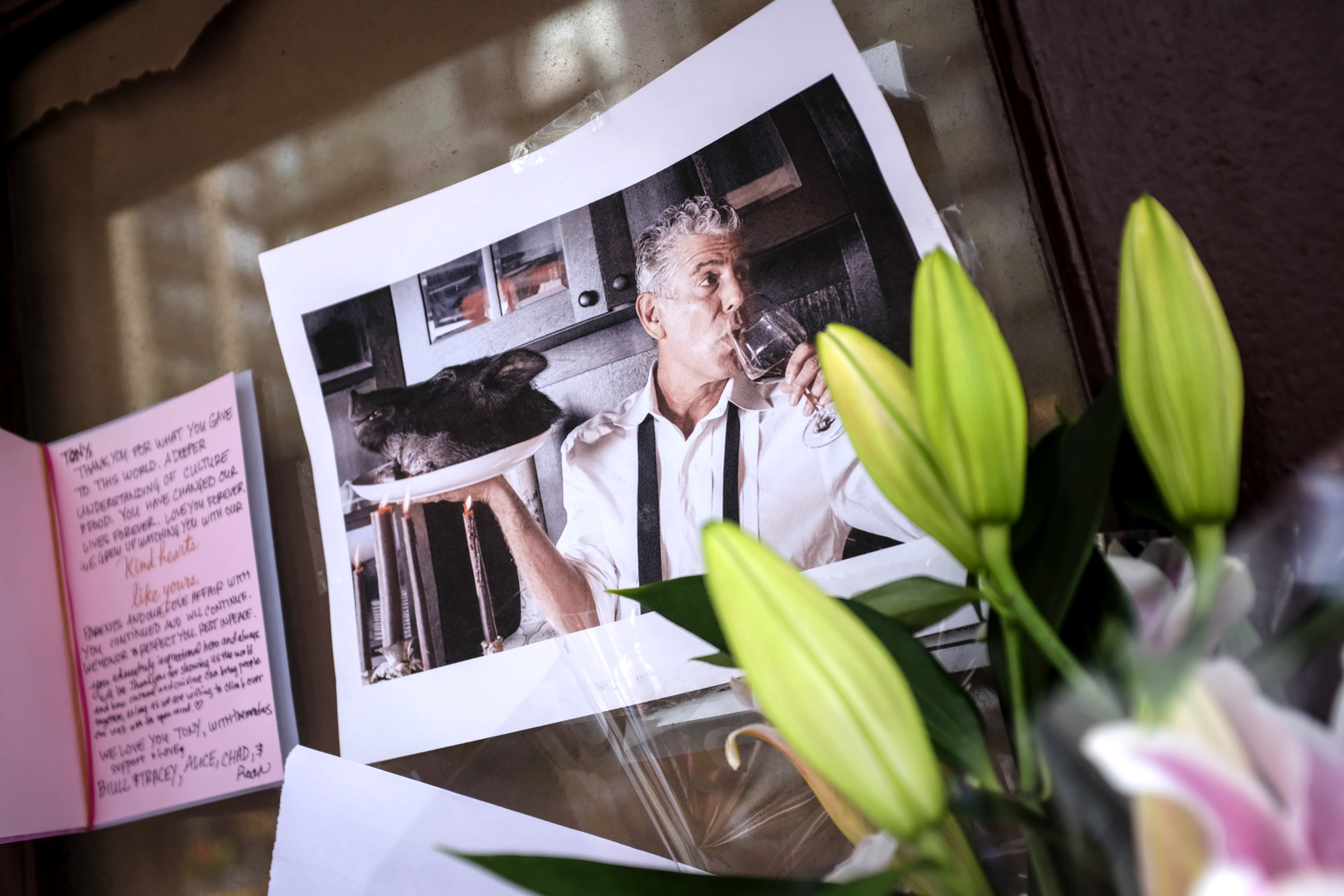Don't leave us
Suicidal people think the world would be better off without them. They are wrong.


A free daily email with the biggest news stories of the day – and the best features from TheWeek.com
You are now subscribed
Your newsletter sign-up was successful
This is the editor’s letter in the current issue of The Week magazine.
When my wife told me amid our morning rush that she'd just heard on the kitchen radio the words "Anthony Bourdain" and "suicide," I was sure she was mistaken. Not Bourdain. On his CNN show and in his writing, the culinary adventurer radiated a deep appreciation for life, for people, for culture, for beauty. He hungrily slurped in experience like a bowl of noodles. I confess that I irrationally grew angry when I realized that yes, he'd surrendered to the darkness he battled throughout his life. Fame, of course, serves as no shield from despair. But I know and love people who share his struggle, and worried what they would take away from the fact that someone so widely admired could see death as preferable to one more day in this disappointing world.
Every year, about 45,000 people commit suicide in the U.S. — twice as many as are killed in homicides. Each of these deaths has its own circumstances, but as Kirsten Powers says this week in USA Today, the steadily rising toll of despair tells us "something is wrong with our culture." Family and community bonds are disintegrating; loneliness is rampant. At the heart of human experience is a paradox: We are each trapped inside the boundaries of our flesh, alone with our histories, our wounds, our brokenness. Yet our isolation is an illusion — a constriction of perception. All the great spiritual traditions teach the same truth: We are connected in a fundamental way to everyone and to everything. As he traveled the world, delighting in the ordinary people he met, Bourdain seemed to understand this intuitively. But friends say he worked himself into exhaustion, and Bourdain once noted that although he had "the best job in the world," he often woke up in hotels far from the people he loved. "The truth is," he said, "I'm alone for most of that time."
The Week
Escape your echo chamber. Get the facts behind the news, plus analysis from multiple perspectives.

Sign up for The Week's Free Newsletters
From our morning news briefing to a weekly Good News Newsletter, get the best of The Week delivered directly to your inbox.
From our morning news briefing to a weekly Good News Newsletter, get the best of The Week delivered directly to your inbox.
If this master storyteller left us a lesson, it is this: You are not truly alone. People care about you more than you realize. Please don't leave us. Reach out.
A free daily email with the biggest news stories of the day – and the best features from TheWeek.com
William Falk is editor-in-chief of The Week, and has held that role since the magazine's first issue in 2001. He has previously been a reporter, columnist, and editor at the Gannett Westchester Newspapers and at Newsday, where he was part of two reporting teams that won Pulitzer Prizes.
-
 The ‘ravenous’ demand for Cornish minerals
The ‘ravenous’ demand for Cornish mineralsUnder the Radar Growing need for critical minerals to power tech has intensified ‘appetite’ for lithium, which could be a ‘huge boon’ for local economy
-
 Why are election experts taking Trump’s midterm threats seriously?
Why are election experts taking Trump’s midterm threats seriously?IN THE SPOTLIGHT As the president muses about polling place deployments and a centralized electoral system aimed at one-party control, lawmakers are taking this administration at its word
-
 ‘Restaurateurs have become millionaires’
‘Restaurateurs have become millionaires’Instant Opinion Opinion, comment and editorials of the day
